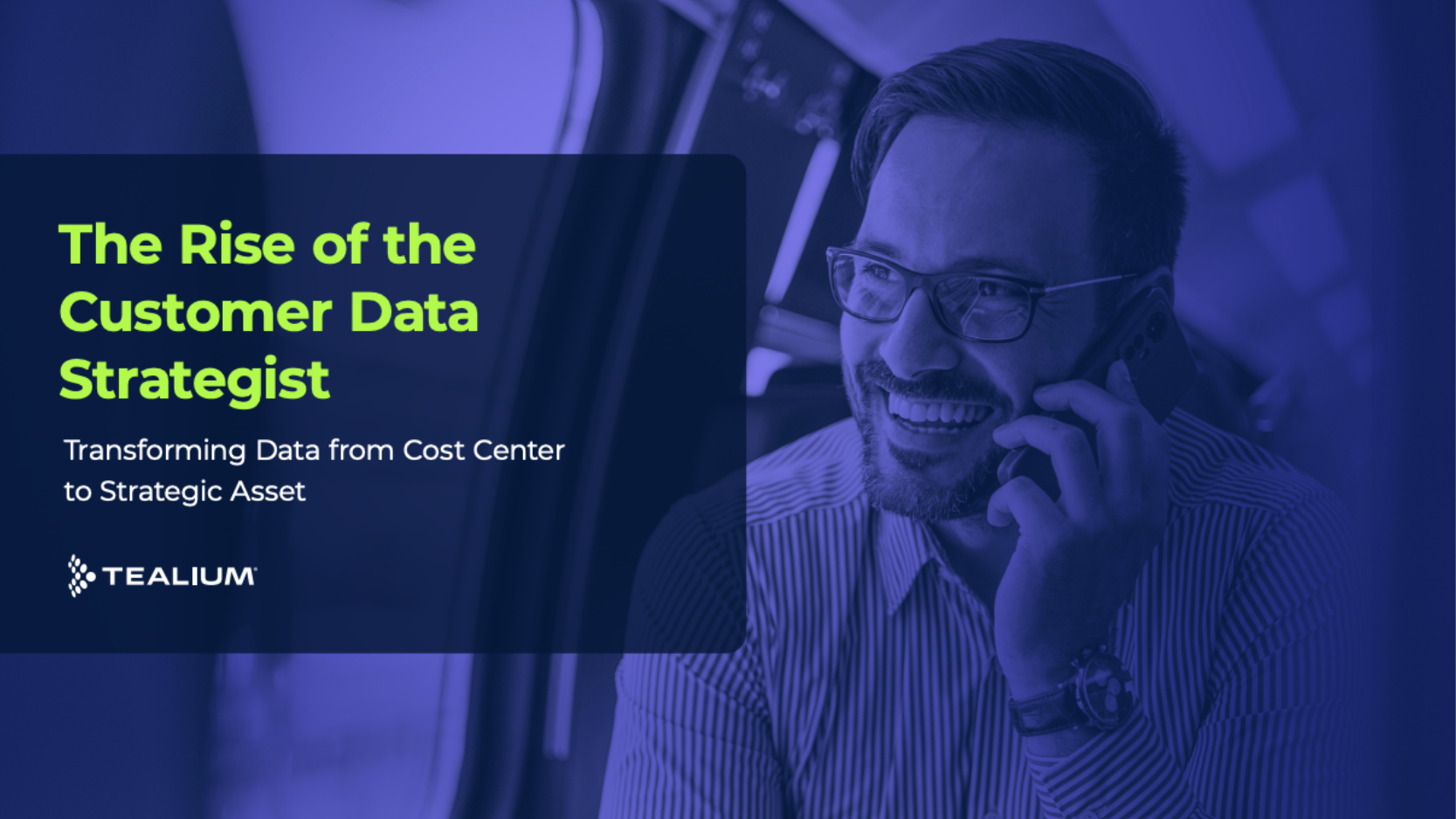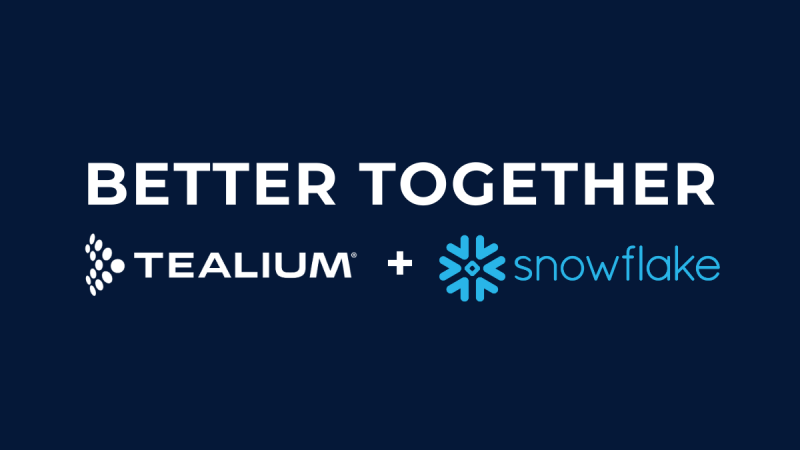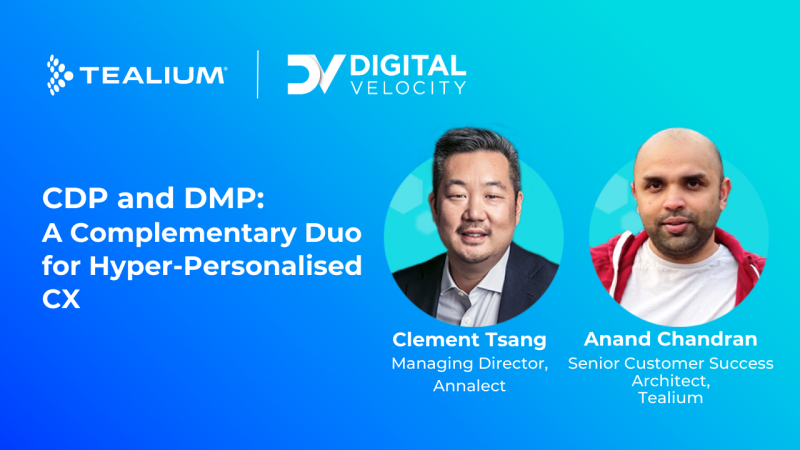MarTech’s Interview Series recently sat down for a fun Q&A style chat with Tealium’s very own martech leader Adam Corey, VP of Marketing.
MTS: Tell us a little bit about your role and how you got here. (what inspired you to work at a martech company)
I’m the VP of Marketing at Tealium. We help companies take control of their data across every one of their channels so they can truly execute on a customer-at-the-center in real time.
I started my career at the dot-com side of a major news organization (ABC News) which started me down a path of using technology to both tell a story and understand how people interact with content and experiences. After that I worked in various roles at a number of analytics companies, from early pioneers like WebSideStory to more niche players like Kontagent.
MTS: Given the massive proliferation of marketing technology, how do you see the martech market evolving over the next few years?
I don’t expect to see a slowdown in the number of technologies available as I think martech as an overall space is becoming more complex and fragmented. But at the same time, brands need to adopt a customer-at-the-center mandate and that means that experiences and insights must be connected across every aspect of the customer experience.
I think over the next few years marketers will push for their technologies to work better with one another in real time around a single view of the customer. I also think marketers are starting to understand that marketing is bigger than just one team. In reality, it should be a cross-functional, organization-wide strategy. Customer data is a brand’s greatest strategic asset – the better they harness data to build better experiences for customers, the more successful those brands will be in the years ahead.
MTS: What do you see as the single most important technology trend or development that’s going to impact us?
Consumer trust is often talked about but is not fully understood yet. If we want to better understand customers and build incredible, relevant experiences or explore what machine learning could mean for our brand, we need data. And to get that data, we need to make sure consumers are comfortable with how their information is managed and used.
New privacy laws like the GDPR in Europe are starting the conversation inside businesses, but consumers are still skeptical over how their data is handled. As marketers and brands we need data. To get that data we need consumer trust and we need to use it build amazing customer experiences.
MTS: What’s the biggest challenge that CMOs need to tackle to make marketing technology work?
I think there are three key challenges they currently face. The first is connecting customer data across various channels and vendors to fully understand what users are doing. Customers don’t see that brands use 20+ technologies to build their customers experience, they just expect a seamless experience. But making that work requires a universal approach to customer data. The second is getting organizational buy-in so more parts of the business contribute to and benefit from the customer data supply chain. Marketing can’t work with different data than a BI or CRM team. They both need to share and enrich data in a common language and platform. The third is being willing to experiment with emerging experiences and technologies that can help bring messages and campaigns into a new realm.
MTS: What startups are you watching/keen on right now?
While most are in their very early stages, I think the Artificial Intelligence (AI) startups are interesting, particularly the narrower application of AI in areas such as chatbots. How can chatbots help my customer service team be more efficient and answer more questions? Does this give me the ability to extend into new channels, such as Facebook messenger? It introduces the idea of being able to have impactful interactions with a customer without the need for a UI.
There is also a new generation of companies disrupting the more established categories like email marketing, marketing automation, and on-site chat, which is interesting. They are more open and flexible than their predecessors – providing the ability to customize virtually all elements – and they are well positioned to grow and change.
MTS: How do you prepare for an AI-centric world as a marketing leader?
Data. Data. Data. Many people are trying to explore machine learning even though they have incomplete data. If 92% of a retail customer’s experience happens offline, is that data being taken into account in data models? Most times, no.
Marketers are generally limited in the data they have access to, and how much their data can integrate into a single view of the customer. This has to be solved before we’ll see truly great AI take shape.
This is how I work:
MTS: One word that best describes how you work.
Holistically
MTS: What apps/software/tools can’t you live without?
Slack, Evernote, and Any.do are my day-to-day necessities.
MTS: What’s your smartest work related shortcut or productivity hack?
Having an Evernote notebook for every project, standing meeting, and one-on-one where I can collect ideas, discussion topics, news articles, and handwritten notes via Livescribe. That way when an idea comes up for a new program, I can add it to the notebook for next week’s agenda and get it off of my mind. It also helps to track what ideas, needs, or thoughts came up over time.
MTS: What are you currently reading? (What do you read, and how do you consume information?)
I have a pretty rigid media diet that starts with the New York Times and Washington Post every morning. I use the NPR One app on my way to the office and I browse the tech and martech blogs over coffee or lunch at my desk.
In the evening, I generally read for pleasure. If there’s an interesting business book I usually power through it in a day or two but with other books I’ll linger for weeks if possible. Right now I’m reading ‘A Long Way Home’ by Saroo Brierley.
MTS: What’s the best advice you’ve ever received?
That the numbers in my spreadsheet or Google Analytics report mean something. They are real people raising their hands trying to tell you something about your business. You have to think through to what people are actually doing if you want to make sense of your data.
MTS: Something you do better than others – the secret of your success?
I’m a jack of all trades, which has served me well. When I started my career, I had to be able to write copy, code web pages, edit video, and build graphics – all on tight deadlines. That helped increase my productivity and taught me the importance of being able to produce and edit pretty quickly.
MTS: Thank you Adam! That was fun and hope to see you back on MarTech Series soon.






